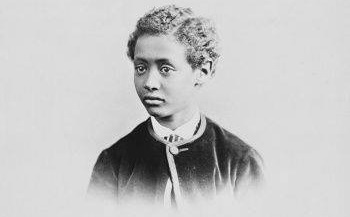Archives | State Papers
Secrets of the powers that be
In the decades after the Great War Europe and North America were awash with bogus princes and aristocrats of all kinds. But in the Free State they received short shrift.
In late October 1924 “Monsieur le Commisaire de L’Emigration Dublin” received a letter (in French) from Prince Malik Cambar’s office in Mazargues-Marseille. He claimed to be the official Representative of the National Assyro-Chaldeans Nation.
The prince was trying to prevent the entry into Ireland of an individual named Zacharias Isaac. This person was a bogus collector of funds in aid of Assyro-Chaldean refugees, but was “appropriating these funds for his own use”. The Prince would be able to furnish more information if this person was detained.
Emigration was informed by the Department of External Affairs that these Assyro- Chaldeans “have been giving us a certain amount of trouble already”. They were divided up into groups along tribal lines, the official remarked, all in dispute.
He suspected that Zacharias Isaac was “quite as respectable of ‘Prince Malik Cambar’. In any case it’s best to ignore their communications.
“If Zacharias does come to Dublin he will find our citizens anything but sympathetic.” But the aliens office thought they would nevertheless flag him up with a “catch card” so they would know of his arrival.
The divisions were less along tribal lines, though these are important, but between Nestorian Chaldeans and members of the Chaldean Catholic Church. The latter would have felt that donations would be forth coming in Ireland, but for them and not for the heretical Nestorians.
Though unknown to Irish officials, Prince Malik Cambar de Varda was the last Assyrian king in Mesopotamia before the destruction of his homeland in a jihad called by the Ottoman Turks in 1915. He formed the Assyro-Chaldean Battalion in Syria under the French Mandate, where he was appointed General in the French army.
Prince Malik Cambar addressed to the Secretary-General of the League a petition in favour of the Assyro-Chaldeans asking that the League of Nations recognise the Assyro-Chaldean nation and stating that the Assyro-Chaldeans desired to be grouped as a united people, and to return to their pacified country and live in peace.
In 1935 he joined the Ethiopian Army to resist the Italian invasion. He remained the leader of the Assyro-Chaldeans in exile until his death in 1969. In his life is reflected the history of the racial and religious turmoil of the Middle East since World War I.


 Peter Costello
Peter Costello
